EU MONITOR #EAHP2021 is going virtual!
The EAHP EU Monitor is a regular round up of news relevant to hospital pharmacy in Europe.
EAHP2021 is going virtual!
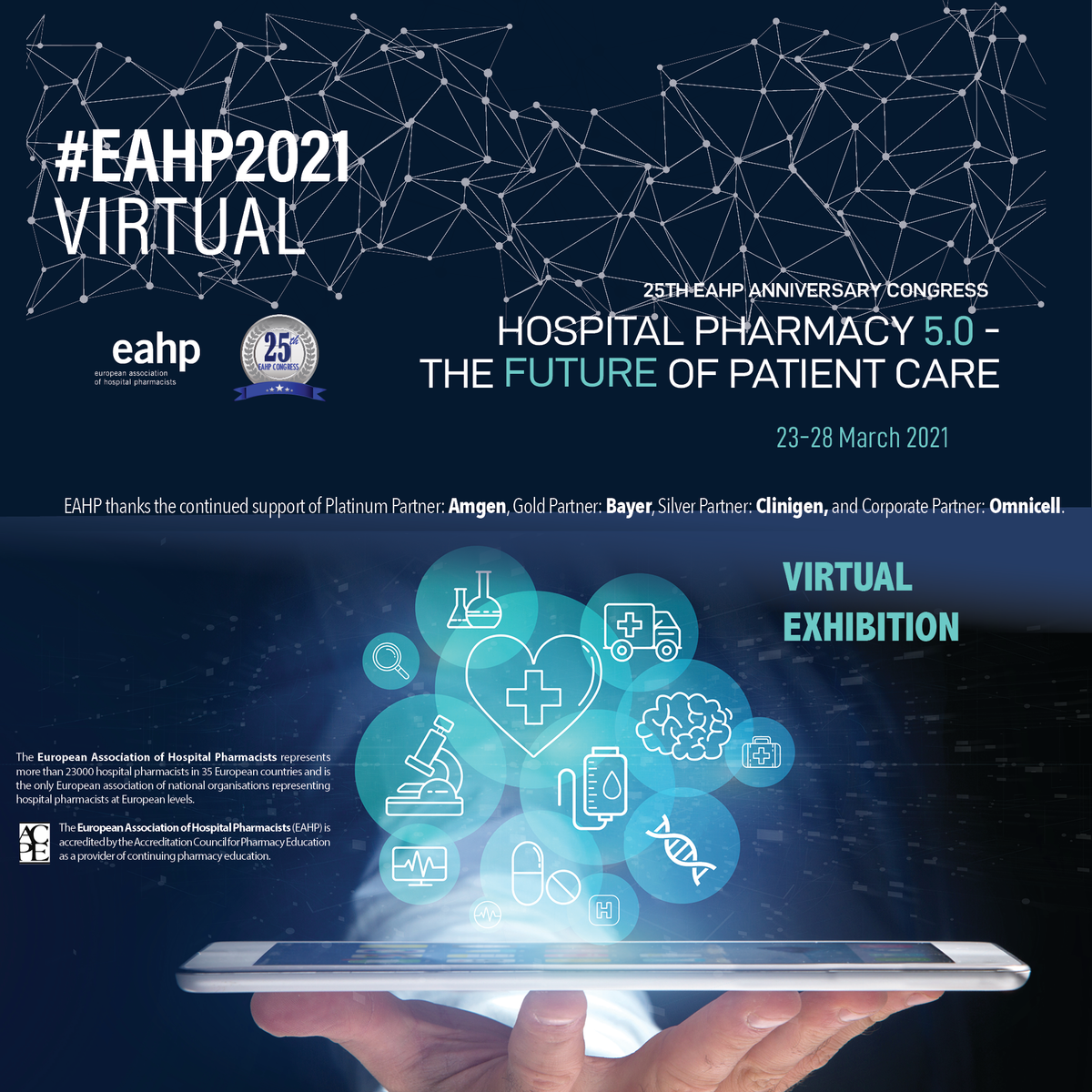 In light of on-going developments with COVID-19, the European Association of Hospital Pharmacists (EAHP) has decided to hold its anniversary congress in 2021 as a fully virtual event. From 23rd to 28th March 2021, attendees of EAHP’s 25th Congress will be provided with the opportunity to virtually learn more about Hospital Pharmacy 5.0 – the future of patient care.
In light of on-going developments with COVID-19, the European Association of Hospital Pharmacists (EAHP) has decided to hold its anniversary congress in 2021 as a fully virtual event. From 23rd to 28th March 2021, attendees of EAHP’s 25th Congress will be provided with the opportunity to virtually learn more about Hospital Pharmacy 5.0 – the future of patient care.
The 6-day programme will be designed in a way that participants can enjoy many more scientific sessions than usual. Keynotes, seminars, workshops, poster sessions, oral presentations, Synergy events and industry satellites will be organised along with a special session on COVID-19. The dynamic congress environment will not only provide attendees with the possibility to virtually learn more about the latest advancements in hospital pharmacy but also offer them the opportunity to virtually network with colleagues and to connect with exhibitors.
The preliminary virtual congress agenda can already be viewed on EAHP’s website and will be updated during the coming weeks.
Read the full Congress announcement HERE
Join EMA’s meeting on COVID-19 vaccines
 On 11th December from 1 to 4.30 PM CET, the European Medicines Agency (EMA) will be hosting a public meeting to inform European citizens about the EU’s approval process for COVID-19 vaccines. It will be broadcasted live.
On 11th December from 1 to 4.30 PM CET, the European Medicines Agency (EMA) will be hosting a public meeting to inform European citizens about the EU’s approval process for COVID-19 vaccines. It will be broadcasted live.
The meeting will focus on informing the public and stakeholders about the EU regulatory process for approval of COVID-19 vaccines and on EMA’s role in their development, evaluation and approval. Also, it will provide the public and stakeholder groups with the possibility to express their needs, expectations and any concerns, so that these can be considered in the relevant regulatory processes. Some aspects of COVID-19 vaccines that are relevant to the public such as accessibility and vaccination campaigns, lie outside the remit of EMA and will not be covered in this event.
Learn more about the event and watch the live broadcast HERE
State of Health in the EU: report for 2020 released
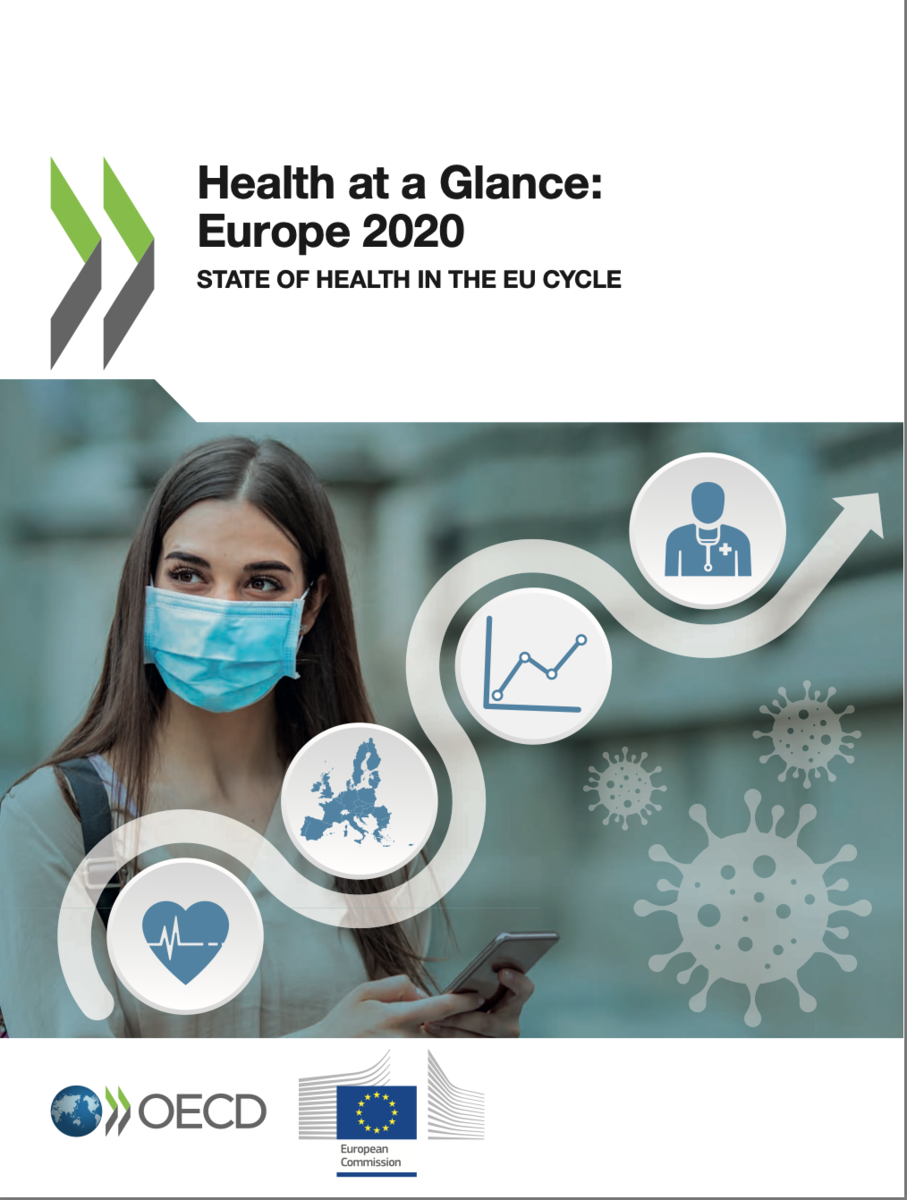 With the publication of the Health at a Glance: Europe 2020 report, the European Commission has kicked off the next cycle of its State of Health in the EU initiative. The report covers information on health status, risk factors for health, health expenditure, quality and access to care in 36 European countries. Additionally, 2 thematic chapters of high relevance for the EU’s agenda have been added, focusing on air pollution and the COVID-19 pandemic.
With the publication of the Health at a Glance: Europe 2020 report, the European Commission has kicked off the next cycle of its State of Health in the EU initiative. The report covers information on health status, risk factors for health, health expenditure, quality and access to care in 36 European countries. Additionally, 2 thematic chapters of high relevance for the EU’s agenda have been added, focusing on air pollution and the COVID-19 pandemic.
On COVID-19 the report shares a preliminary assessment of the effectiveness of European countries’ containment and mitigation measures, health systems capacity, testing strategies, measures to protect vulnerable groups and continuity of care for non-COVID patients. Policymakers are provided with high-quality evidence from which valuable lessons can be learnt, more effective policy interventions developed, and build more resilient health systems, both in the short and the long term.
The State of Health in the EU is a two-year initiative undertaken by the European Commission that provides policymakers, interest groups, and health practitioners with factual, comparative data and insights into health and health systems in EU countries. The cycle is developed in cooperation with the Organisation for Economic Co-operation and Development (OECD) and the European Observatory on Health Systems and Policies.
Read the report HERE
Access the factsheet HERE
The EU’s Pharmaceutical Strategy – seeking to offer affordable, accessible and safe medicines for all
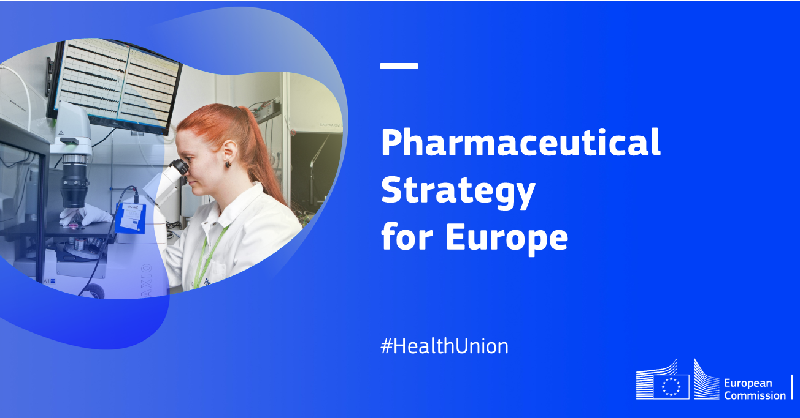 At the end of November, the European Commission published its Pharmaceutical Strategy for Europe which seeks to ensure that patients have access to innovative and affordable medicines and to support the competitiveness, innovative capacity and sustainability of the EU’s pharmaceutical industry. The strategy is a component for building a stronger European Health Union, an initiative that is slowly taking shape.
At the end of November, the European Commission published its Pharmaceutical Strategy for Europe which seeks to ensure that patients have access to innovative and affordable medicines and to support the competitiveness, innovative capacity and sustainability of the EU’s pharmaceutical industry. The strategy is a component for building a stronger European Health Union, an initiative that is slowly taking shape.
The Strategy takes into account some of the lessons learnt from the COVID-19 pandemic and focuses on four areas, namely:
- Ensuring access to affordable medicines for patients and addressing unmet medical needs;
- Supporting competitiveness, innovation and sustainability of the EU’s pharmaceutical industry and the development of high quality, safe, effective and greener medicines;
- Enhancing crisis preparedness and response mechanisms, diversified and secure supply chains as well as addressing medicines shortages; and
- Ensuring a strong EU voice in the world, by promoting a high level of quality, efficacy and safety standards.
Several legislative and non-legislative actions will be launched in the coming years to support the realisations of the actions set out in the Strategy. These include, among others, futureproofing the existing pharmaceutical legislation, fostering research and innovation, creating a robust digital infrastructure and revising the regulations on medicines for children and rare diseases.
Learn more about the Pharmaceutical Strategy HERE
Read EAHP’s press release HERE
Expert opinion on the organisation of resilient health and social care following the COVID-19 pandemic
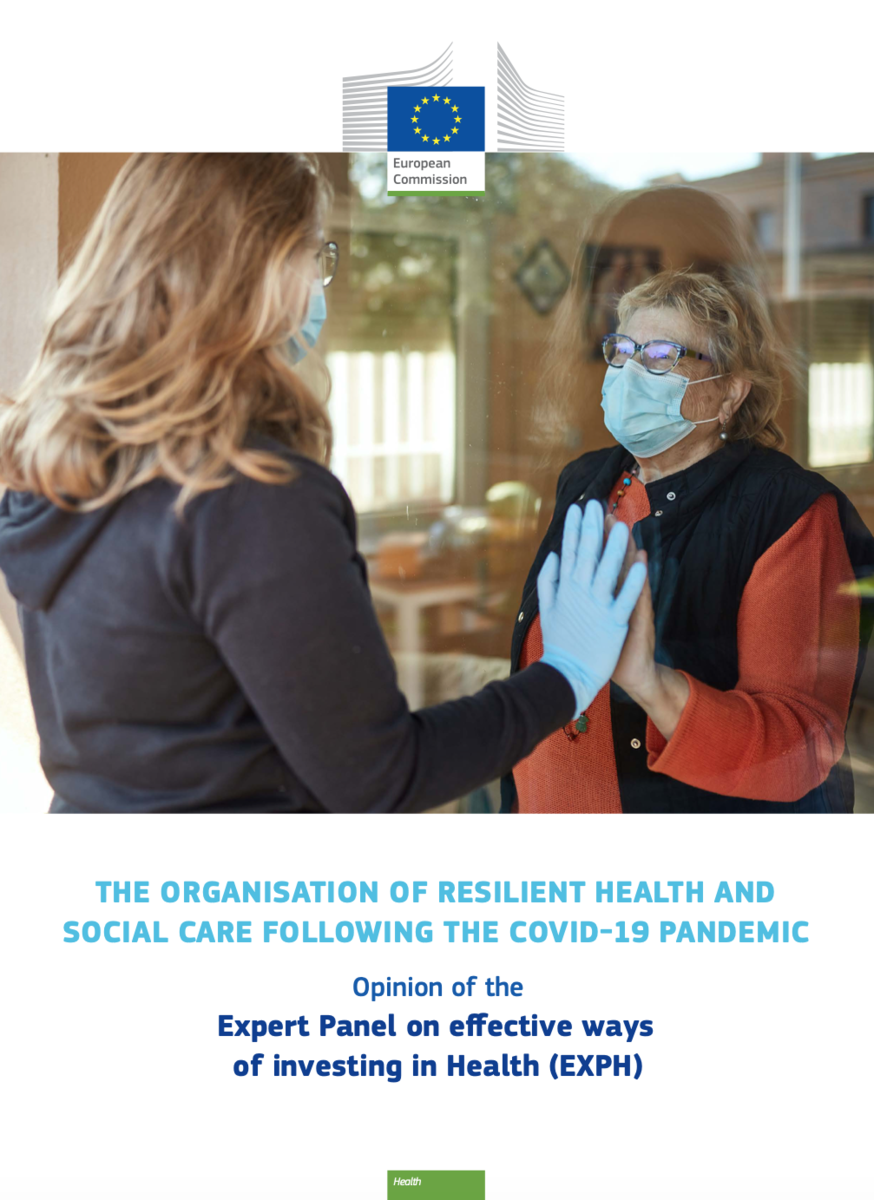 This week, the European Commission publicised the opinion of the Expert Panel on Effective Ways of Investing in Health on the organisation of resilient health and social care following the COVID-19 pandemic. The document outlines how health system resilience can be strengthened, maps needs of vulnerable patients at times of crisis and defines a blueprint for resilience testing of health systems.
This week, the European Commission publicised the opinion of the Expert Panel on Effective Ways of Investing in Health on the organisation of resilient health and social care following the COVID-19 pandemic. The document outlines how health system resilience can be strengthened, maps needs of vulnerable patients at times of crisis and defines a blueprint for resilience testing of health systems.
The Panel received the mandate to look beyond the current crisis and to consider how health systems can be prepared better for threats similar to those of the current pandemic. The experts looked at several areas, including but not limited to workforce training, research, development and procurement, interprofessional and inter-sectoral collaboration as well as integrating information and communication technologies. The Panel’s recommendations range from
- creating adaptive surge capacity, taking into account solidarity mechanisms within and across borders;
- investing in primary care and mental health;
- designing strategies to monitor and reduce disinformation;
- linking databases across systems and sectors, in line with an integrated whole-of-society approach;
- providing specific training on dealing with socially deprived and minority groups; to
- developing a resilience test toolkit and implementation methodology for health systems.
Read the opinion HERE
OECD report on empowering the health workforce
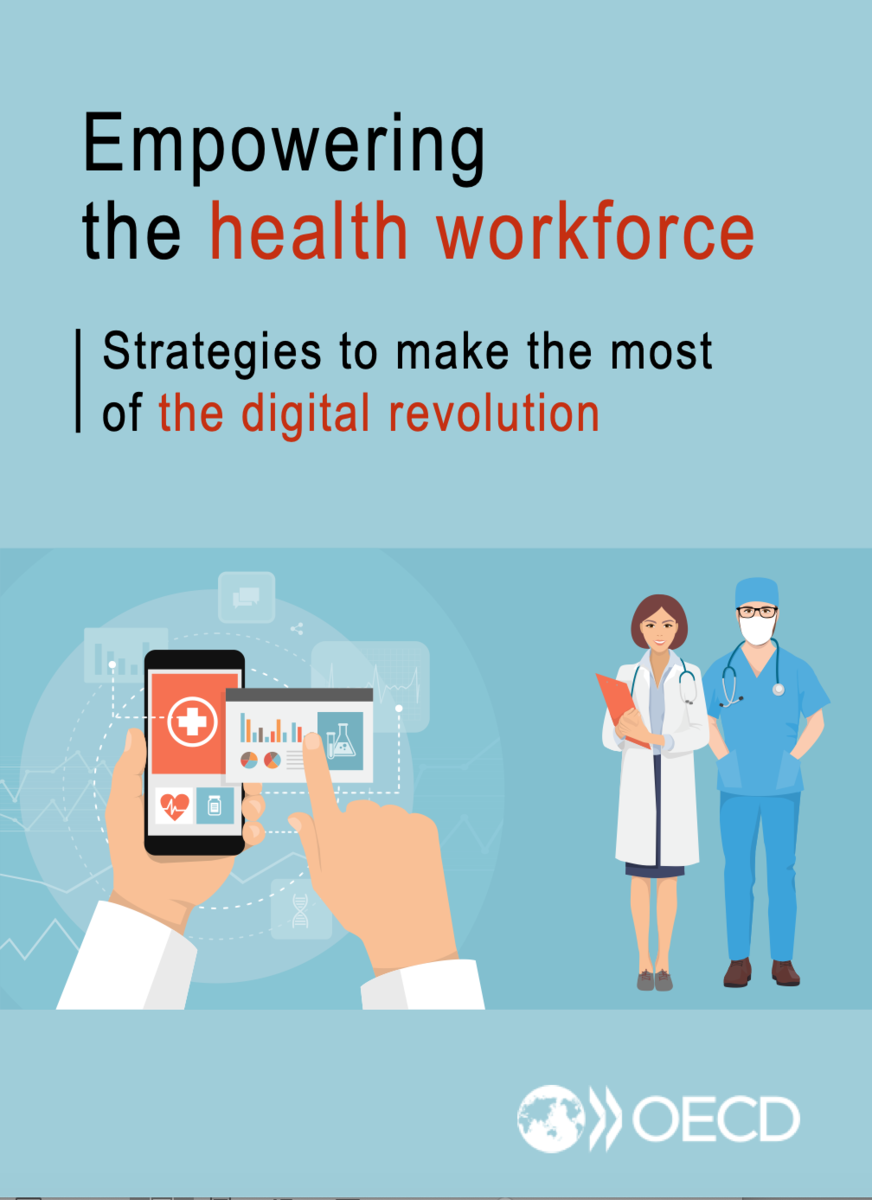 To support the activities of the German Presidency of the Council of the European Union, the Organisation for Economic Co-operation and Development (OECD) put together a report outlining proposals for utilising digitalisation in healthcare. The report titled “Empowering the health workforce - Strategies to make the most of the digital revolution” was released at the conference “Digital Health 2020 - EU on the Move", organised on 11th November by the German Federal Ministry of Health.
To support the activities of the German Presidency of the Council of the European Union, the Organisation for Economic Co-operation and Development (OECD) put together a report outlining proposals for utilising digitalisation in healthcare. The report titled “Empowering the health workforce - Strategies to make the most of the digital revolution” was released at the conference “Digital Health 2020 - EU on the Move", organised on 11th November by the German Federal Ministry of Health.
The report explores on the one hand the unique opportunities offered by digital technologies to health systems. On the other hand, it looks at barriers and the current state of play of the digital transformation in health systems. Since updating the digital infrastructure, ensuring interoperability standards and enabling data sharing cannot transform the health sector on its own, the report has put forward strategies that seek to help healthcare workers make use of these tools. To this end, the report discusses how to engage and empower the health workforce to make the most of the digital revolution by:
- building trust in the benefits of digital health technologies among health workers and patients;
- ensuring that digital technologies truly meet the needs of health workers and their patients;
- advancing expertise and skills needed within the health sector for effective co-design, deployment, and use of digital health technologies;
- adapting payment systems and the organisation of work such that health workers can timely and effectively start using digital solutions and tools.
Read the OECD report HERE
FIP - Position Statement on emerging technologies and pharmacy practice
 The International Pharmaceutical Federation (FIP) has outlined in a new position statement how pharmacists and pharmacy organisations can rise to the challenge that new technologies provide to the profession. By touching on current advancements, the statement shares insights on the work of pharmacists and their capability to deliver universal, safe, accessible and timely care with the help of digital technology.
The International Pharmaceutical Federation (FIP) has outlined in a new position statement how pharmacists and pharmacy organisations can rise to the challenge that new technologies provide to the profession. By touching on current advancements, the statement shares insights on the work of pharmacists and their capability to deliver universal, safe, accessible and timely care with the help of digital technology.
The statement highlights technological advances, some which might be considered disruptive, that are affecting the pharmacy profession. These include for instance successfully providing remote services during the COVID-19 pandemic, 24/7 online access to pharmacists, harvesting of patient health and online purchasing data by profit-seeking entities and the use of artificial intelligence. The statement also insists on the need to involve pharmacists in the development of digital health technologies.
Read FIPs Position Statement HERE
EJHP: Patient prioritisation for hospital pharmacy services: current approaches in the UK
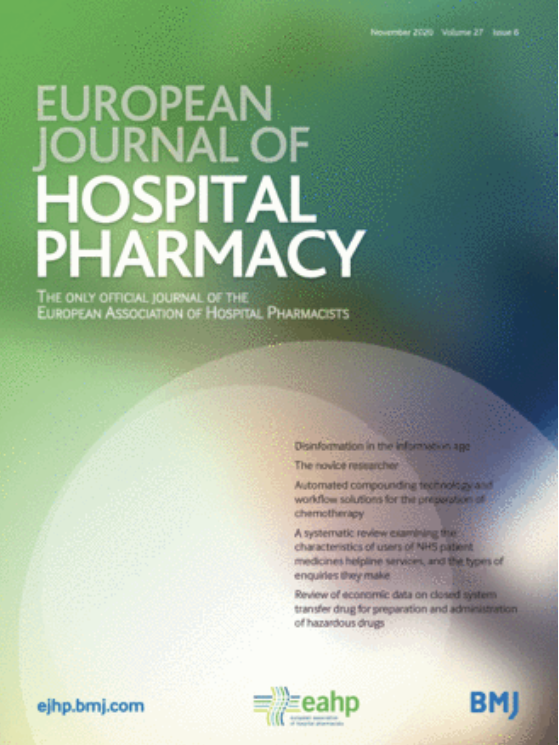
The original research published in the online edition of the European Journal of Hospital Pharmacy (EJHP) aims to survey and explore current approaches to the deployment of pharmaceutical care prioritisation tools in acute hospitals in the UK. The authors sent a national online survey to chief pharmacists of hospitals to determine if they use a prioritisation tool or process. The study demonstrates that many UK clinical hospital pharmacy services are finding innovative ways of delivering inpatient services to improve workforce efficiency and patient safety. Much of these efforts were borne from a combination of limited staff and increasing workload pressures concerning adherence to national targets.
Read the article HERE
 [COVID-19 Updates]
[COVID-19 Updates]
EAHP’s COVID-19 Resource Centre
To assist its member associations and individual hospital pharmacists in this critical time with the provision of the best possible care for patients, EAHP has decided to gather and make available information on COVID-19 relevant for the hospital pharmacy profession.
Access the Resource Centre HERE
European Journal of Hospital Pharmacy - Implementation of a novel home delivery service during pandemic
The article analyses the role that hospital pharmacists develop during the COVID-19 pandemic.
Read the article HERE
Research in Social and Administrative Pharmacy - The impact of COVID-19 on pharmacy transitions of care services
This paper discusses how COVID-19 has impacted the delivery of pharmacy transitions of care services with real world examples from Sharp Grossmont Hospital and Hoag Memorial Hospital Presbyterian.
Read the article HERE
Research in Social and Administrative Pharmacy - Provision of clinical pharmacy services during the COVID-19 pandemic: Experiences of pharmacists from 16 European countries
This study sought to explore the views and experiences of clinical pharmacists in relation to the provision of clinical pharmacy services during COVID-19.
Read the article HERE
The European Statements of Hospital Pharmacy – EAHP’s Evidence Map
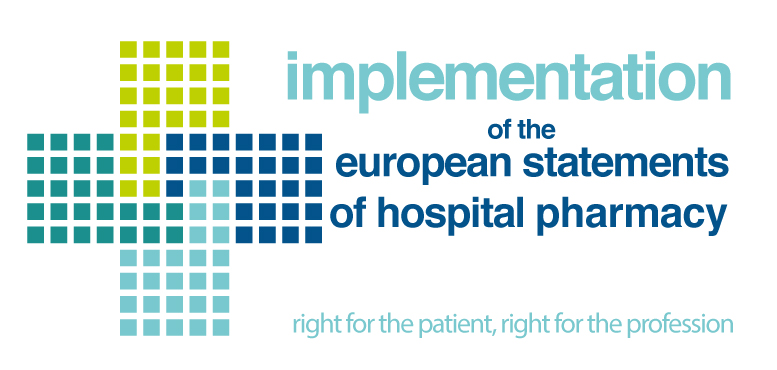
EAHP’s Statement website has an evidence map which helps hospital pharmacists to identify case studies, Statement Implementation Collaborative Learning Centres (SILCCs) and Good Practice Initiatives (GPIs). The information contained in the case studies and GIPs or obtained via a SILCC fellowship could be replicated in one’s own hospital. Check here the evidence map.
___________________________________________________________________________________
Consultations
![]()
EMA – Guideline on registry-based studies
The guideline was developed based on the comments received on the discussion paper on ‘Methodological and operational considerations on the use of patient disease registries for regulatory purposes’, that went through a public consultation between November 2018 and June 2019, and a consultation of EMA Committees and Working parties.
Deadline – 31st December 2020
Access the consultation HERE
EDQM – Pharmeuropa PaedForm, Issue 2
The EDQM has just released issue 2 of Pharmeuropa PaedForm, in which the third monograph elaborated by the PaedForm Working Party, the draft text for an ethanol-free formulation for Furosemide 2 mg/mL Oral Solution, is published for public consultation prior to its inclusion in the European Paediatric Formulary.
Deadline – 31st December 2020
Find more information HERE




